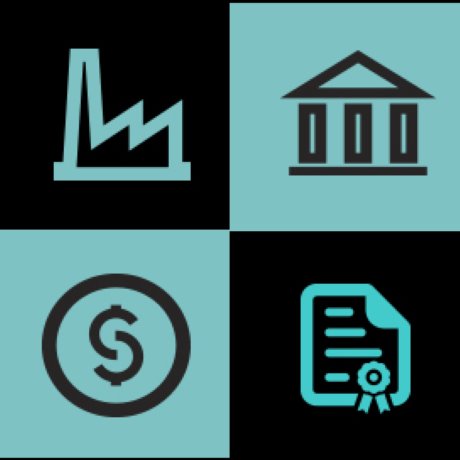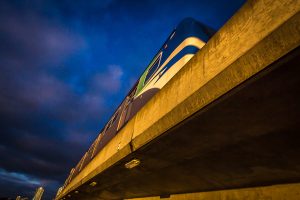British Columbians will head to the polls May 9 for the 41st provincial general election. Here are highlights from the party platforms that may directly impact the construction industry.
NDP
The party anticipates creating 96,000 jobs and stimulating $18 billion dollars in economic activity by building schools, hospitals and transit options. They also intend to build 114,000 new rental, co-op and social housing units. The NDP want to create a capital fund to upgrade and build sports facilities, playgrounds, arts and culture spaces, local community seniors’ centres and mental health and addictions centres.
The platform indicates the party wants to fund the provincial share of the Metro Vancouver Mayors’ Council’s 10-year transportation vision, including a 40 per cent share of all capital costs. These investments include Surrey Light Rail, a new Broadway skytrain and thousands of new hours of bus service as well as bridge and road improvements. The NDP are promising to maintain and upgrade highways across the province, including completing Highway 1 upgrades to the Alberta border.
They also plan to update environmental assessment legislation and processes to ensure the legal rights of First Nations are respected and meet the public’s expectation of a strong, transparent process, the party’s platform reads.
The NDP is opposed to the Site C project as well the Kinder Morgan Trans Mountain Pipeline.
The party is also putting a large emphasis on B.C. wood products. They plan to offer incentives to B.C. builders that use engineered wood products and to B.C. companies starting innovative wood manufacturing operations. The party also intends to partner with colleges and universities to train the designers, engineers and tradespeople needed to put these wood products to use.
The NDP state they will also work with Metro municipalities to develop a new Translink governance model. This includes getting rid of the referendum requirement that has delayed progress on fixing lower mainland traffic, the party stated.
Apprenticeship ratios are also on the agenda for government-funded projects. The NDP states incentives will be provided to public sector employers to hire and train apprentices, strengthening credentialing requirements, as they improve training and mandate local hiring on government projects.
The NDP plans to start a Temporary Foreign Worker registry and end the collection of illegal recruitment fees.
Liberals
B.C.’s Liberals plan to invest $2.6 billion in capital spending for new post-secondary buildings and renewal of infrastructure at campuses across B.C. They also intend to build an earthquake early warning system for schools, hospitals and emergency command centres.
On LNG, the Liberals aim to get three LNG facilities moving to construction by 2020. To date, B.C. has one LNG plant in operation, one ready for construction and 18 projects with LNG export permits ready to go when market conditions allow.
The Liberals also aim to complete massive projects like the Site C dam and the George Massey Tunnel Replacement Project.
The party is also promising to phase out the Provincial Sales Tax on electricity for small business and cut the small business tax rate to two per cent. They would also increase the Small Business Venture Capital Tax Credit from $35 million to $38.5 million.
In terms of labour, Clark wants to increase minimum wage in a "stable, affordable, and predictable way" and legislate WorkSafeBC to develop a policy that requires surplus funds be returned to employers. They would maintain the current BC Labour Relations Code and establish a licensing system with mandatory certification for all asbestos removal companies. A new tax credit for worker equipment including items such as safety boots would also be added.
The platform includes plans to require a world-leading marine spill response system, prior to any new operations on the coast and to finalize the Kinder Morgan agreement worth up to $1 billion in the BC Clean Communities Program — meaning between $25 million and $50 million annually for 20 years, the Liberals state.
They also intend to "support the development of refineries and pipelines that meet our environmental assessment requirements and provide benefits and jobs for British Columbians."
In terms of finance, Clark wants to control government spending by ensuring it is no greater than nominal GDP growth and eliminate the operating debt by 2021.
Clark intends to match the federal government’s $2.2 billion investment in Metro Vancouver transit projects over 11 years and negotiate with all three levels of government on project specifics, with the Surrey LRT Project and the Broadway Line as the two top priorities.
The Liberal platform also expresses support for the Vancouver Mayors’ Council’s 10-year vision for Metro Vancouver transportation.
Clark plans to create a new Richmond Project Office, to build and upgrade schools in Richmond over the next three years.
The Liberals plan to complete the redirection of $3 billion in training investments to focus on skills and better align annual investments into programs for in-demand jobs by 2024 as well as continue the Canada-BC Jobs Grant to provide up to $15,000 to offset the cost of training new employees.
Clark states she would also make permanent the BC Training Tax Credit program that provides employers with an incentive to hire and train apprentices and trade workers.
Green Party
The Green Party plans to "re-establish the integrity of the Environmental Assessment process and establish clear criteria for decisions that fully factor in sustainability and cumulative impacts."
The Green Party would also invest up to $750 million to build 4,000 new units of affordable housing each year.
The party intends to increase the foreign homebuyer’s tax to 30 per cent and expand it across B.C.
They are promising to invest $120 million over four years in partnerships with the industry, academic institutions and government to support research, development and commercialization of climate friendly technologies and intend on setting up an emerging economy task force to address the changing nature of business over the next 10 to 25 years.
The Green Party aims to work with industrial sectors affected by climate change to help them preserve their long-term economic and environmental sustainability and promote best practices; as well as develop an inventory of old-growth forests to determine reserves and protect them.
The Green Party does not support Site C, calling it "economically and socially reckless."
They would strike an independent "fair-wages commission" that will be tasked with establishing a new minimum wage and overseeing regular rate reviews.











Recent Comments
comments for this post are closed